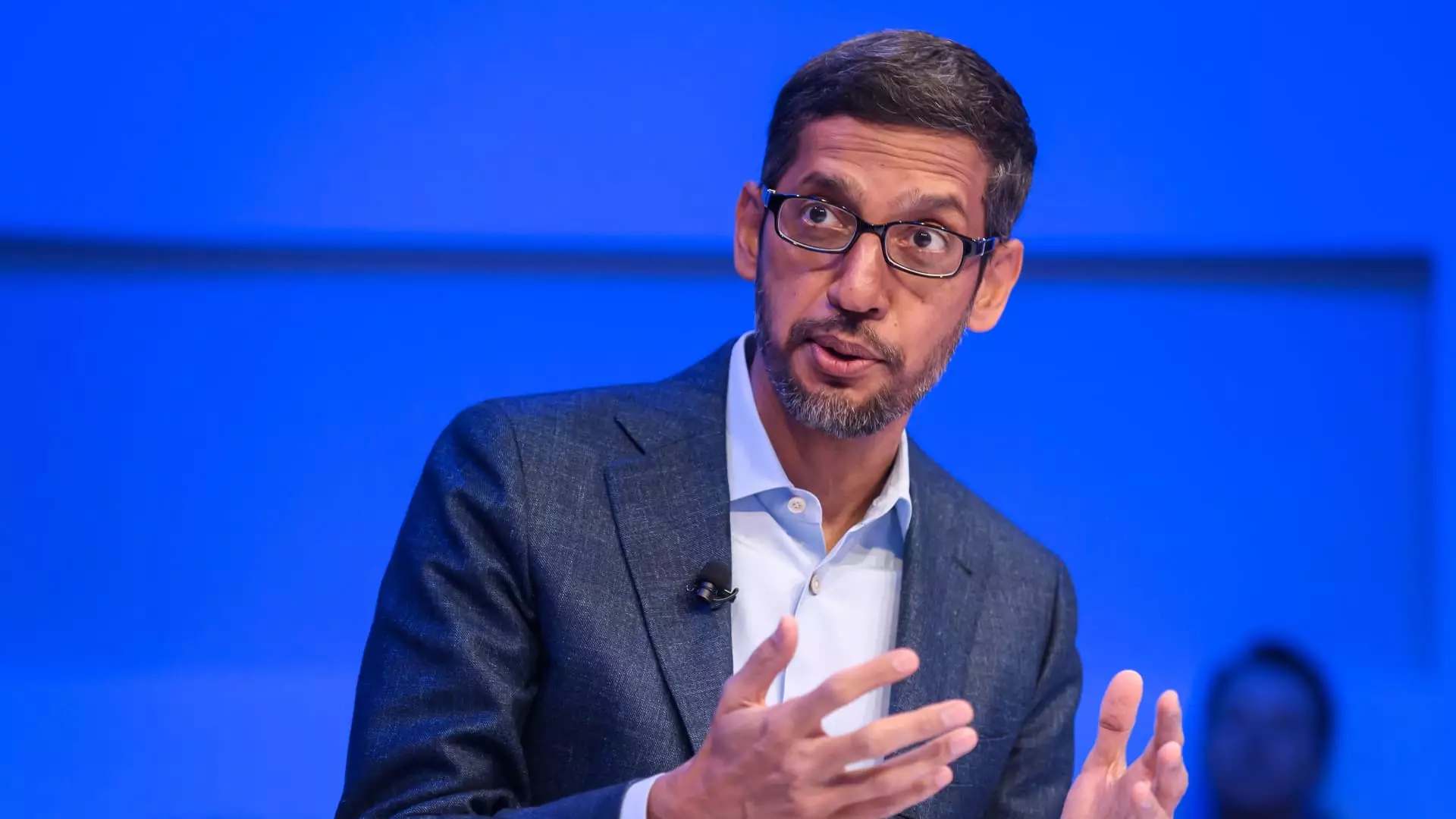In a recent meeting that inspired both excitement and anxiety among Google employees, CEO Sundar Pichai emphasized the high stakes the company faces as it approaches 2025. With mounting competition and stringent regulatory landscapes, there is an undeniable urgency permeating the traditional tech giant’s headquarters. During a strategy session on December 18, Pichai and his leadership team, dressed in holiday cheer, underscored the need for a relentless focus on advanced artificial intelligence (AI) to not only maintain Google’s foothold in the tech arena but to combat rising rivals.
Pichai articulated a resonating message to his employees, urging them to recognize the critical nature of the coming years and the necessity to “move faster” as a cohesive unit. With the backdrop of innovation rapidly reshaping the digital landscape, he urged a concerted effort to leverage AI’s capabilities to meet tangible user needs. These themes set the tone for a company wrestling with several challenges, both internal and external, that demand immediate attention.
Google’s search engine, long considered a titan in the digital marketplace, has recently been subjected to disruptive changes. The rise of generative AI applications, particularly platforms like OpenAI’s ChatGPT, has catalyzed competition that Google has not seen in years. The growing capabilities of AI to provide information and services have attracted significant investments, leading to competitors boasting impressive valuations and ambitious roadmaps of their own. As companies like OpenAI and its supporters, such as Microsoft, capture consumer attention and investment, Google must step up its game to retain relevance and user trust.
In this context, the scrutiny over Google’s business practices cannot be overlooked. Legal challenges from U.S. regulators and international competition watchdogs threaten to undermine its longstanding dominance in the search market. The Department of Justice’s actions against Google point to broader issues of monopolistic behavior that could hinder its operational capabilities moving forward. Pichai’s acknowledgment of this scrutiny reflects the understanding that, as a tech juggernaut, Google must navigate both innovation and regulation judiciously.
Enter Gemini, Google’s ambitious AI model that Pichai has identified as a focal point for growth in 2025. The differentiation strategies set forth aim to harness AI’s full potential not only to enrich consumer engagement but also to establish a strong presence among competitors. Gemini is anticipated to serve as a linchpin in Google’s battle for market leadership, with Pichai echoing the sentiment that building “big, new business” is critical for the tech behemoth.
The approach to scaling Gemini will be pivotal, as employees voiced concerns over its reception compared to prominent competitors like ChatGPT. DeepMind’s co-founder, Demis Hassabis, reinforced this vision during the meeting, promising rapid advancements in the app’s capabilities. The push toward a universal AI assistant—termed Project Astra—serves as a testament to Google’s commitment to staying competitive in a sector characterized by fast-paced evolution. As the landscape shifts, so too must Google’s strategies.
Amidst these challenges, Pichai’s revisitation of Google’s origins aims to inspire a culture of innovation and resourcefulness. He recalled how the company’s founders, Larry Page and Sergey Brin, accomplished remarkable feats with limited resources. They exemplified a “scrappy” ethos that embraced creativity amid constraints. Drawing parallels to current times, Pichai urged employees to harness a similar spirit in addressing the contemporary challenges confronting the company.
This call for unity is vital, especially following a significant downsizing which saw about 6% of Google’s workforce cut in 2023. Streamlined operations can foster efficiency, yet innovation must remain at the forefront if Google intends to fend off competition and meet its ambitious targets. The executive team, along with employees’ engagement through interactive forums, highlights a collective responsibility towards shaping Google’s trajectory.
As Google positions itself for 2025, the road ahead is laden with both obstacles and opportunities. Balancing aggressive innovation with measured regulatory compliance will be crucial as the company aspires to maintain its status as a tech leader. The urgency expressed by Pichai reflects not just a moment of reflection but a clarion call for action—one that necessitates a profound transformation in how Google operates amidst a rapidly evolving digital environment.
The coming years will be a litmus test for the company, demanding clarity of vision and swift execution. As Google pivots towards an AI-centric future, it is imperative to foster innovation while addressing the competitive pressures and regulatory scrutiny that shape this increasingly complex landscape. The question remains: can a company steeped in legacy adapt quickly enough to seize the benefits of its pioneering technology? Only time will reveal if Google can navigate these turbulent waters successfully.

